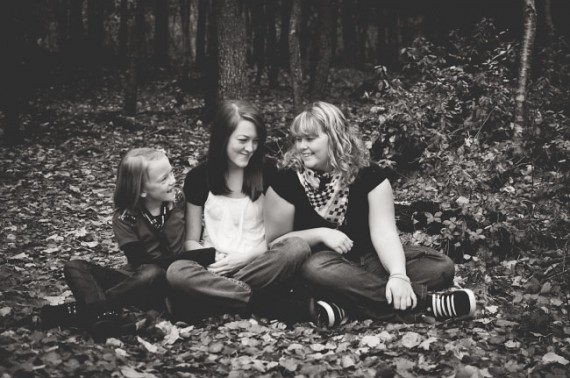Everett and his wife lived near my wife and me. Everett loved his rose garden, and spent many hours there, weeding, pruning, fertilizing, spraying insecticide, and cutting fresh blooms to give to friends and neighbors. Everett also attended the same church we attended. We met at Everett’s house every Thursday evening for a summer Bible study.
Everett was elderly and had health problems. One Thursday when we went to his home for Bible study, he mentioned that he was not feeling well. Three days later the pastor announced in church that Everett had passed away on Saturday. A few days later we attended his funeral service at the church.
One of Everett’s sons delivered his eulogy, and included numerous biographical details. Everett had been a very accomplished person with many skills. He had a distinguished career as a decorated officer in the military. He had been an outstanding and well-known engineer. His son revealed detail after detail about Everett that none of us had ever heard.
Everyone in the church was astonished. None of us had known any of those things about Everett, even though he and his wife had attended our church for almost ten years. It seemed that we had never really known Everett. He was one of those people who didn’t brag about himself or his accomplishments and none of us had ever bothered to ask him to tell us about his life.
How was it possible that we knew he loved roses, he drove a blue Buick, he attended the same church we attended, and he and his wife hosted a Bible study at their home, yet we knew almost nothing about him? What else about Everett had we missed?
What Do We Really Know About Other People?
That experience served as a wake-up call for some of us. We realized that our lives were filled with people who were merely acquaintances. We knew a little about them, but never knew their stories. We had never bothered to ask.
 If we had never heard their stories, how could we possibly really know them?
If we had never heard their stories, how could we possibly really know them?
In this age of messages limited to one hundred forty characters, how well do we really know most people? We have huge amounts of information at our fingertips, information that we can access in seconds, but how often do we bother to get to really know other people?
Frequently people tell me “I have no close friends,” or “I have only one or two people that I’m really close to.” As I write this, I am reminded that just yesterday evening a man I have known for many years told me “If anything happens to me, I’m screwed. I have no one.”
How is it possible that our culture is filled with people who have no one or almost no one? Almost everywhere I go I see people walking, driving, sitting in restaurants, riding on public transportation, and involved in almost every conceivable activity while talking on their cellphones or pressing keys on their cellphones and tablets, seemingly very involved with their electronic communications devices. How can they have no one or almost no one in their lives when they appear to be connected almost all the time to other people?
 “I have hundreds of friends on Facebook.”
“I have hundreds of friends on Facebook.”
“How many of these people do you know outside Facebook?” I often ask.
“What do you mean?”
“How many of them have you ever met in person?”
The usual response? “A few.” Sometimes, “One or two.”
“How do you know they are who they claim to be? How do you know that the pictures and the things they tell you about themselves on Facebook are true if you’ve never met them in person? Maybe the pictures are of someone else, or pictures of the person from a long time ago. Maybe they make up the stuff they say.”
“Hmmm. Well I don’t really know.”
Many of us don’t really know. We don’t really know many, if any other people very well at all. Nor do we really know very much of anything about many of the people we think we know.
How often have we turned on the evening news to yet another story of someone who committed some atrocious act and heard the reporter interviewing that person’s neighbors and acquaintances and heard “We were shocked.” How could the person who lived next door or across the street have done what they did?

How Do We Discover the Image of God in People?
Many of us believe that we were created in the image of God, but have we been able to discover that image in people? What does it look like and how do we go about discovering it?
I am making the assumption that the image of God in people does not mean that we physically resemble God, but that some of his attributes may be found in us, albeit in a lesser degree. Many of his attributes might be found in us but let us consider three, love, mercy and grace.
In order to determine if people might possess these attributes, first we must get to know them. Mr. Upstanding Citizen in his private life may be something very different from his public persona. The homeless person we see sitting by the side of the road dressed in tattered, dirty clothes might be one of the most loving, merciful and grace-filled people in town.
Really knowing people involves more than recognizing them, being acquainted with them and maybe knowing a few basic facts about them, such as their names, where they live or work, and perhaps a few other bits of surface information. It includes knowing their stories, even if in abbreviated form.
Knowing their stories and getting to really know them includes getting to know where they come from and discovering some of the things that have been their joys in life, as well as the things that have caused them pain. Whom do they love? Who loves them? How do they show love and care and grace both to themselves and to others?
In my experience getting to know people well happens most successfully when we spend time and share space with them, which allows us to interact with them face-to-face, observe who they are and hear their stories.
Is this necessary? Must we really go to so much trouble? Is it not enough to recognize that the Bible says we are created in God’s image? On the other hand, don’t most of us know people who look and act nothing like what we suppose someone created in God’s image should look and act like? Perhaps it is necessary to get to know people well if we are to know if some of his attributes are actually present in them.
In the next two posts in this series we will discuss getting to know other people by spending time and sharing space with them, and getting to know them by hearing and knowing their stories. If you want to get to know other people and see God in them, you don’t want to miss these posts!




So true…
Thanks, Pam!
Great post, Sam. Thank you. Looking forward to the next one/s. Sometimes I think we like ants, scurrying along about our business but never really touching base with each other even though we all come from the same nest, family, church, etc. And modern coms – internet, cell phones, and sites like FaceBook – really do very little to help and more in the long run to hinder, because they give us a false impression that we are connected when we really aren’t.
Thank you Jem. The scurrying along like ants illustration does fit many of us. We have to get to Costco, then drop off some papers at the insurance office on our way home to get something quick to eat before Yoga class and then home again after class to check the mail, e-mail and return a few calls before getting ready for the next day. Most of these activities involve other people, but it is so easy to turn those contacts into brief transactions with little real interaction with those people.
Is that what we really want? Do we desire relationship with the people with whom we come into contact most days? Do some of them desire relationship? My wife and I find that some do not, but many do. It is with those people that we can explore relationship with others and ultimately with the one who created us for relationship with others and with him. (I don’t have a good non-gendered pronoun to refer to our creator.)
Thanks, Sam. I too find myself wondering how we can truly see into each other’s souls without physical, face-to-face time. We need to learn how, because virtual community is not going away.
I have taken to writing responses to other people’s posts in my word processor before posting them to Facebook, Twitter, whatever. That makes me slow down and think about what I’m saying, and about who I’m saying it to. Virtual mindfulness?
Virtual community has much to offer, but we find face-to-face community, even though it demands more of us, has even more to offer. True, if I write something snarky in my word processor, I can go back and fix it before I send it to the recipient. I can present a more polished version of myself. Others don’t need to know if I’ve washed my hair this week or put on clean clothes. No one need know I’ve gained lots of weight since the last time they saw me. We can hide, but in doing so we will also miss being really known, and really knowing others. Being really known and really knowing others can be rewarding at times and terrifying at other times.
You obviously feel strongly about the value of physical relationships and the deficits of virtual relationships, and I agree one hundred percent. I have retired and will soon be moving to a small city (where I grew up, as it turns out) in a few months. One of my goals, partly as a result of posts here, is to make a concerted effort from the start to build relationships with my neighbors. I think that will strike many of them as a bit odd, but I’ve gotten to an age where I don’t mind being seen as a bit odd :). Perhaps it takes only one person, functioning as a relational hub, to build a small community.
Having been a pastor myself in a former life, you would think I would already be good at this. But I’m not. I have lots of small-group and interpersonal relationship building skills, of course. But I have always put those to use within the context of a church family. Now I am a church exile. I am excited about the possibilities of building community outside the walls of a church building.
Yes, I do feel strongly about the value of physical, face-to-face relationships. My wife and I have also recently retired, so are probably about your age. We find it interesting that many people our age understand this idea, whereas many much younger people have very few face-to-face friends. When I discuss this idea with them, they frequently decide that most of the people they know in-person are actually “acquaintances,” people they only slightly know.
A couple of years ago I wrote a series on this blog “Getting to Know Your Neighbors.” We were the new people to the neighborhood. We took the initiative, talked to our neighbors, started a summer block party with the help of two neighborhood couples (so it wouldn’t be just our thing, but they and their friends would also feel it was theirs). We also have an annual Halloween party on our driveway, which this past Halloween had between 300 and 400 people in attendance. It turned into a street party about three years ago and now draws people from surrounding neighborhoods. Another family on our block has a smores party on their driveway that night. There are many other ways we have gotten to know our neighbors. Take the initiative.
Really appreciate this post. Getting to “really know” people is a big goal of mine.
That’s also my goal. Hopefully these posts will result in conversations about how we can do that, including stories about times it has happened. Maybe it was an accident, but maybe we can learn how to get to “really know” people on a regular basis. If we can get to really know others, maybe we can also get to really know ourselves and even Jesus.
Sam – I do not intend to draw this out…but just wanted to briefly share that I am a retired ELCA pastor who has done a great deal in Human Relations/Encounter Group/T-group training and more recently with Emotional Intelligence-Human Relations Institute (EQ-HR). In my 50+ years of ordained ministry those experiences have led to many experiences of “really getting to know people” in significant ways. Carrying that skill into parish ministry has been a huge blessing.
My wife and I will be moving to a small city in a couple of months (I’m retiring). One idea we have talked about is reversing the “welcome to the neighborhood” tradition that used to exist. Instead of waiting for others to welcome us to the neighborhood, we thought we might bake cookies (well, she would do the baking, wouldn’t want to poison the neighbors), and drop by each of our neighbor’s homes and give them “we’re new in the neighborhood” cookies. It’s a little thing, but it will break the ice.
Great idea. We’ve done that very thing and most people loved it. I came up with a very simple recipe that almost everyone likes. You can find it here on this blog: https://redeeminggod.com/welcome-new-people-to-the-neighborhood/
We buy packages of disposable plates for giving cookies. These cookies are simple. You don’t even need to chop the nuts. Just toss them into a large sturdy leftover Craisins bag or something similar, zip it shut, and smash them with your fist a few times. It takes less than a minute. I have made over forty variations on the cookies. You can start with the basic batter, add peanut butter and chocolate chips, or oatmeal and raisins, or Macadamias and white chocolate chips. Your can think of all sorts of things to add and your new neighbors will enjoy your experiments. Broccoli and pickles however, is a bad idea.
Amazing! I can see how using your skills in parish ministry could indeed be a huge blessing. We never ran across a pastor with those skills. Are you teaching those skills to pastors? That could be a blessing to so many people.
The Center for EQ-HR is dedicated to working with religious/church systems and leaders in training for emotional intelligence and human relations skills. Workshops are conducted throughout the U.S. Check their website at eqhr.org or their mailing address: Center for Emotional Intelligence and Human Relations Skills c/o Laura McElroy, Bookkeeper 7715 Dam Number 4 Road Williamsport, MD 21795-2017 I have served on the board of this organization and on staff for workshops and can attest to the high quality and dedication of the staff and the positive results of this training for ministry.